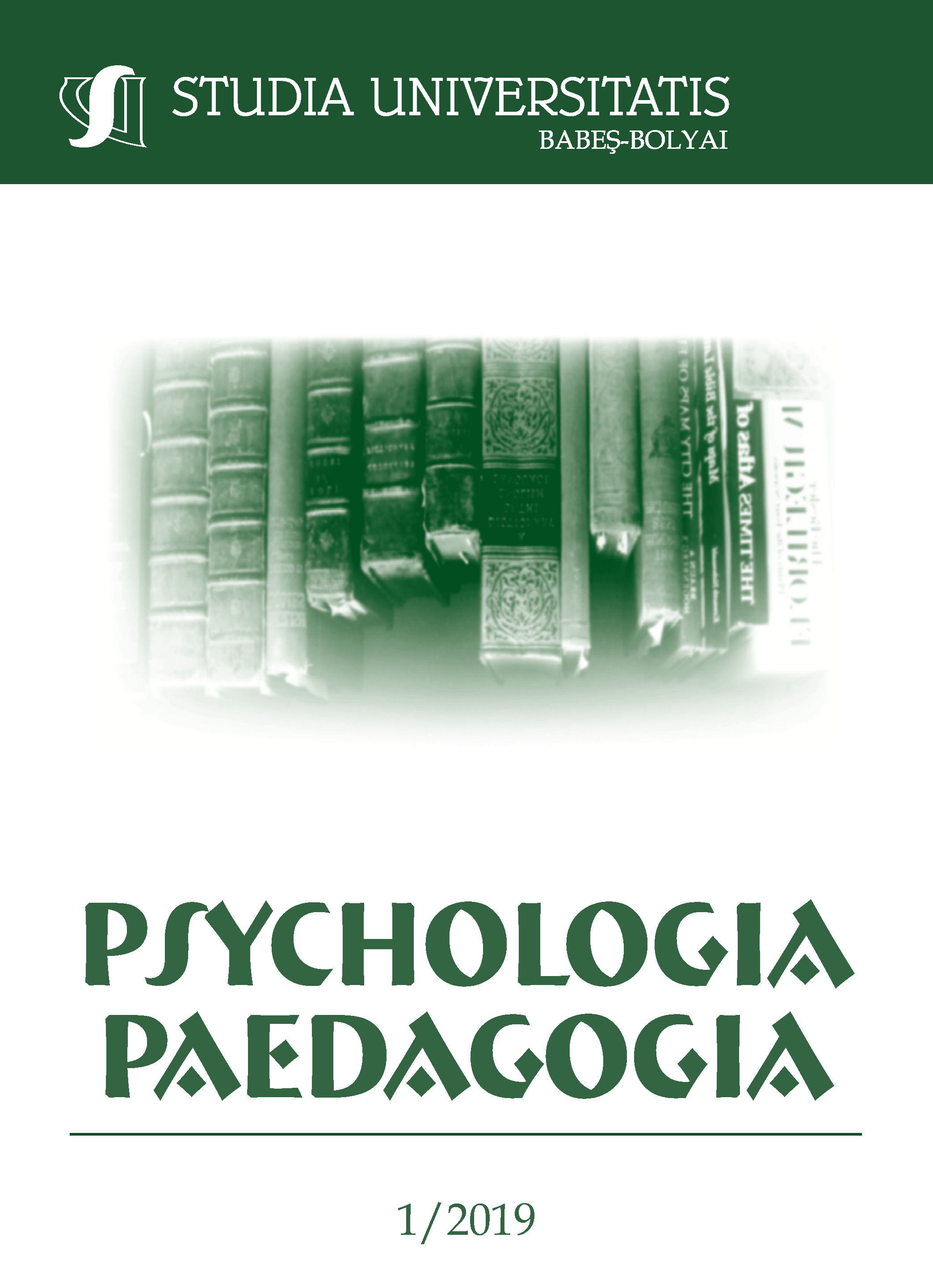FOSTERING INTERCULTURAL COMPETENCE IN TEACHING ENGLISH FOR LAW ENFORCEMENT
DOI:
https://doi.org/10.24193/subbpsyped.2019.1.07Keywords:
cultural diversity, cultural awareness, intercultural competence, English Language Teaching (ELT), English for Law Enforcement (LEE)Abstract
Cultural diversity has been one of the essential realizations of the globalized society. Once individuals have become interconnected they have also become aware of their being culturally diverse. However challenged today’s globalized society may have become, the issue of overcoming cultural differences still remains actual. Following this line of thought, this paper starts with an overview of the status of English as a lingua franca, and then shifts the focus to the clarification of the concepts of cultural diversity, cultural awareness and intercultural competence, while emphasizing their complementarity. Finally, it explores how intercultural competence may be fostered and developed in a sector of the ELT such as English for Law Enforcement. Some instances of classroom activities, which teachers may use to trigger their students’ awareness of police-related cultural aspects, will be analysed from a didactic perspective.
References
Badges of rank (2019, February, 26). Retrieved from https://safe.met.police.uk/about/badges_of_rank.html
British Metropolitan Police Officers (2019, February 26). Retrieved from https://www.123rf.com/photo_49995227_stock-vector-british-metropolitan-police-officers-and-usa-nypd-police-officer-traditional-authentic-helmet-and-am.html
Burns, A. (2013). English as an International Language: Considerations for English Language Teaching. In C. Manara & N.T. Zacharias (Eds.) Contextualizing the Pedagogy of English as an International Language: Issues and Tensions (pp. 26-39). Newcastle upon Tyne: Cambridge Scholars Publishing
Byram, M. (1997). Teaching and assessing intercultural communicative competence. Cleverdon, UK: Multilingual Matters.
Cohen, A. D. et al. (2003). Maximizing study abroad: A language instructor’s guide to strategies for language and culture learning and use. Minneapolis: Center for Advanced Research in Language Acquisition, University of Minnesota.
Crystal, D. (2010). The Future of Englishes: going local. In R. Facchinetti, D. Crystal & B. Seidlhofer (Eds.), From International to Local English and Back Again (pp. 17-27). In Linguistic Insights: Studies in Language and Communication. Bern: Peter Lang.
Facchinetti, Crystal & Seidlhofer (eds.) (2010). From International to Local English and Back Again. Linguistic Insights: Studies in Language and Communication. Bern: Peter Lang.
Harden, T. & Witte, A. (2011). Intercultural Competence: Concepts, Challenges, Evaluations. In Intercultural Studies and Foreign Language Learning. Oxford: Peter Lang. 2011.
Kachru, B.B. (1982). The Other tongue: English across cultures. University of Illinois Press.
Kramsch, C. (1993). Context and culture in language teaching. Oxford: Oxford University Press.
Liddicoat, A. J. (2005). Teaching languages for intercultural communication. In: Cunningham, D. & Hatoss, A. (eds.) An international perspective on language policies, practices and proficiencies. Bucharest: Fédération Internationale des Professeurs de Langues Vivantes (FIPLV) & Editura Fundaţiei Academie AXIS.
Mansfield, G. & Poppi, F. (2012). The English as a foreign language / lingua franca debate: Sensitizing teachers of English as a foreign language towards teaching English as a lingua franca. In PROFILE Issues in Teachers’ Professional Development, 14(1), pp. 159-172. Retrieved from http://revistas.unal.edu.co/index.php/profile/article/view/29067/29340
Palmer, G.B., & Sharifian, F. (2007). Applied cultural linguistics: An emerging paradigm. In Applied Cultural Linguistics: Implications for second language learning and intercultural communication, ed. F. Sharifian and G.B. Palmer, 1-14. Philadelphia: John Benjamins.
Patch of the NYPD (2019, March 7). Retrieved from https://commons.wikimedia.org/wiki/File:Patch_of_the_New_York_City_Police_Department.png
Risager, K. (2005). Foreword. In L. Sercu & E. Bandura, Foreign Language Teachers and Intercultural Competence: An International Investigation (pp. vii-ix). In Languages for Intercultural Communication and Education. Clevedon: Multilingual Matters Ltd.
Romanian Police (2019, February 26). Retrieved from https://en.wikipedia.org/wiki/Romanian_Police
Romanian police coat of arms (2019, March 4). Retrieved from https://en.wikipedia.org/wiki/Coat_of_arms_of_the_Romanian_Police
Scarino, A., & Liddicoat, A. J. (2009). Teaching and Learning Languages: A guide. Curriculum Corporation.
Seargeant, P. (2012). Disciplinarity and the Study of World Englishes. World Englishes: Journal of English as an International and Intranational Language, 31(1), pp. 113-129.
Seidlhofer, B. (2010). Giving VOICE to English as a Lingua Franca. In R. Facchinetti, D. Crystal & B. Seidlhofer (Eds.), From International to Local English and Back Again (pp. 147-163). In Linguistic Insights: Studies in Language and Communication. Bern: Peter Lang.
Shachaf, P. (2008). Cultural diversity and information and communication technology impacts on global virtual teams: An exploratory study. Information and Management, 45 (2), 131-142.
Siemund, P., Davydova, J. & Maier, G. (2012). The Amazing World of Englishes. An Introduction. Berlin: Mouton de Gruyter.
Uniforma poliției române (2019, February 26). Retrieved from https://www.politiaromana.ro/ro/informatii-generale/uniforma-politiei-romane/uniforma-de-serviciu
Downloads
Published
How to Cite
Issue
Section
License
Copyright (c) 2019 Studia Universitatis Babeș-Bolyai Psychologia-Paedagogia

This work is licensed under a Creative Commons Attribution-NonCommercial-NoDerivatives 4.0 International License.





